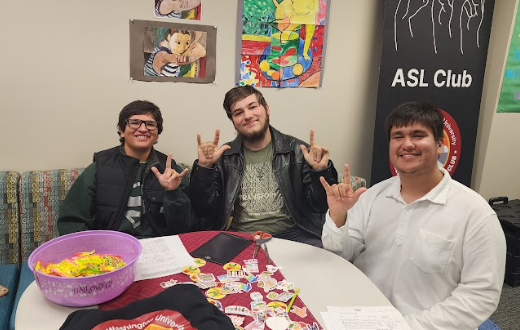Attended by faculty and students from the French, Japanese, Korean, Russian, Sign Language and Spanish departments, the World Languages and Cultures Open House was a forum for students across departments and across campus to build a sense of community with one another and learn more about what CWU’s World Languages and Cultures department has to offer.
“Knowing another language has huge potential for almost any career you can envision,” Volha Isakava said at the World Languages & Cultures Open House on Oct. 10. Isakava is the chair of the World Languages and Cultures department, a professor of Russian language and one of the several language and culture faculty that attended the open house.
More than 70 students showed up to the event hosted in Black Hall 106-6, according to Christina Torres García, the Director of Latino & Latin American Studies Program. Each language department held games at their table that focused on language, ranging from students guessing the meaning of French double entendres and trying to figure out the meaning of “konglish” – korean-english hybrid – words, to learning how to write their name in the Cyrillic alphabet at the Russian table and learning how to finger spell it at the Sign Language table.
There was also a language Kahoot! led by French language professor Michael Johnson with questions about global language, while students ate homemade food from the various cultures represented at the event including enchiladas and Russian potato salad.
Beyond fun games and food, the event was a way to bring students together to learn about world languages and why they matter beyond their general education requirements. “Think about today’s workplace,” Isakava said. “Even if you come from the smallest rural community, or from a small town like Ellensburg, you know for a fact that when you start working, you’ll be working with people and for people from other cultures and other backgrounds. If you work for an international business or international firm, you might have teammates from India or from Eastern Europe or from Africa. So to learn a language is like to open up the window to another world, to another way of thinking, and open your mind to new experiences and adventures.”
Most importantly, according to Isakava, language degrees carry practical skills no matter what field you go into. She points out that lots of students want to go on to teach language, to teach English overseas or even to work for the government, and that’s why they are learning a language.
“It goes beyond just this kind of practical, career driven focus. Having a language education equips you with cross cultural understanding, sensibilities and skills that are an asset in any workplace,” Isakava said. “Almost any job you hold today in any sector requires you to understand, respect and appreciate people who are not like you, who came from different backgrounds, maybe speak a different language than you, maybe have different cultural traditions and that is the true asset of a World Languages and Cultures degree.”








